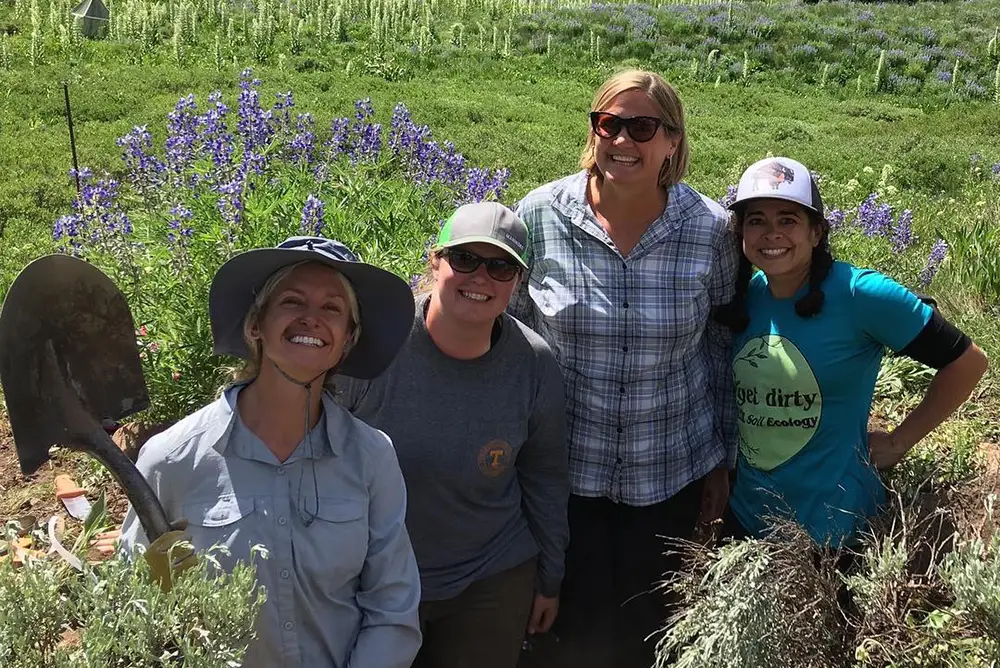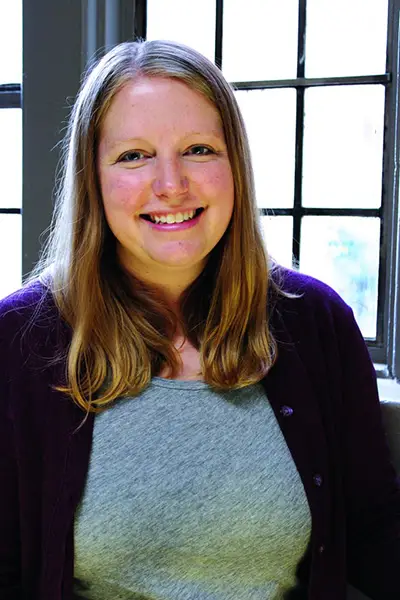NSF CAREER Award Expands Ecological Research for Kivlin Lab
NSF CAREER Award Expands Ecological Research for Kivlin Lab

Associate Professor Stephanie Kivlin earned a 2024 National Science Foundation (NSF) CAREER Award for her project proposal “Spatiotemporal Dynamics of Plant-Mycorrhizal Fungal Symbioses at Continental Scale.” The work will help build a greater understanding of ways that plant life reacts to changes in global conditions.
The Kivlin Lab, within the UT Department of Ecology and Evolutionary Biology (EEB), researches the drivers of distributions of mycorrhizal fungi—fungi that have symbiotic relationships with the roots of many plants—and how global change may affect them and their interactions with these plants. The CAREER project will expand the lab team’s focus to study foundational trees of North America.
“This CAREER award is pivotal to provide support to map the current and future distribution of plants and mycorrhizal fungi and the outcome of symbiosis throughout the continental US for the first time,” said Kivlin.

Global change is forcing organisms to shift their biogeographical ranges and change their seasonal activities—affecting their growth, survival, and reproduction. Microbial symbionts can modulate the response of host organisms to global change, but it isn’t known how interactions among hosts and these symbionts shift as conditions change planetwide.
Researchers will collect fungi from the roots of 10 foundational tree species across the Eastern US for four years and sequence long-term herbarium samples to understand historical fungal communities. They will address how these trees and their mycorrhizal fungal symbionts may become decoupled over space and time as plants and fungi shift ranges.
“We will leverage the USFS Forest Inventory and Analysis database, which involves more than 14,000 locations, to understand how mycorrhizal fungal distributions have shifted since 2001,” said Kivlin. “We will then assess how plants grow, survive, and reproduce with home fungi versus those that are moved to simulate range shifts under global change.”
For students, the grant will enable the development of two Course-based Undergraduate Research Experiences (CUREs) focused on this research.
“This research and outreach is collaborative with the Easy as Play initiative, led by EEB Professor Liz Derryberry, through which we will engage dozens of middle school students in plant-mycorrhizal fungal research and training,” said Kivlin.
CAREER award funding will also support graduate student Ella Segal in the Kivlin lab, plus a postdoctoral researcher and a technician.
“Graduate students from EEB will also be engaged in CUREs,” said Kivlin. “They will gain valuable pedagogical knowledge in experiential learning, which will prepare them for the workforce upon graduation.”
By Randall Brown